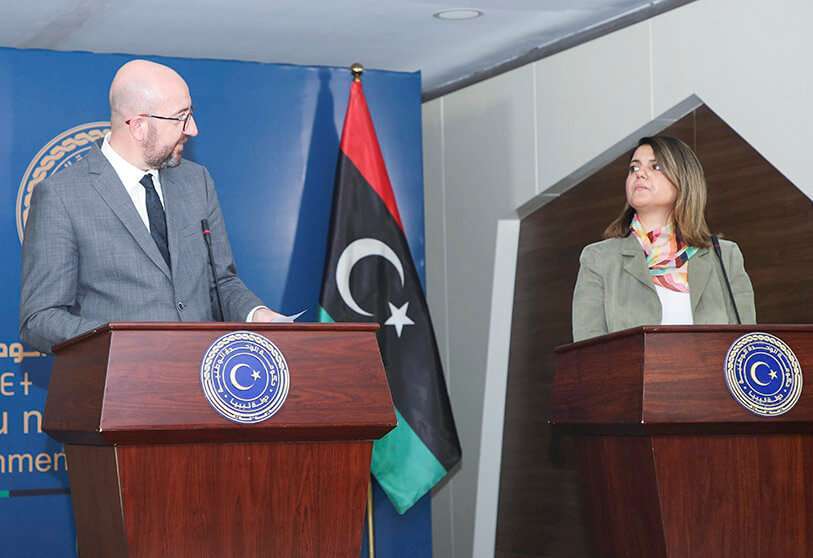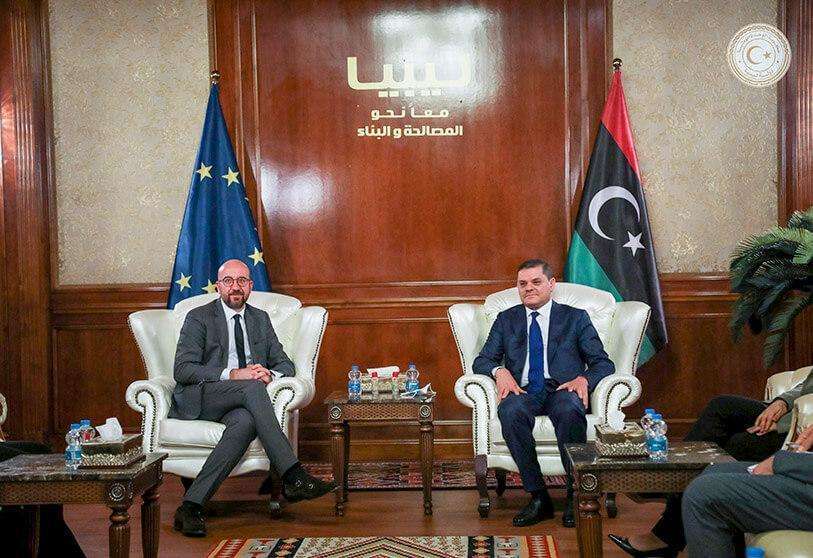Libya and EU discuss aid plan to monitor southern border

Ensuring the security of the southern border, a gateway for migrants from neighbouring countries, is one of the priorities of the new transitional National Unity Government (GNU) in Libya, Libyan Foreign Minister Najla al-Manqoush said today.
Speaking to the press after meeting in the capital with the European Commissioner for Neighbourhood and Enlargement of the European Union (EU), Oliver Varhelyi, and the foreign ministers of Italy, Luigi Di Maio, and Malta, Evarist Bartolo, the head of diplomacy warned that Libya cannot tackle this problem alone and that EU technical and material assistance was discussed in this regard.
"The whole problem starts in the south," Al Manqoush stressed, referring to the long dividing line that separates Libya from Algeria, Niger and Chad.
"That big issue is a priority for Libya, a country that seeks the path to peace, security and stability, the nation that suffered the most from the consequences of illegal migration, which obliges us to follow a more comprehensive approach to this problem," he stressed.
According to data from the International Organization for Migration (IOM), nearly 10,000 people, the vast majority from Sahelian and sub-Saharan African countries, have been intercepted on the high seas and returned to Libya in the first five months of 2021, despite the fact that the North African country is still considered "not a safe place".

In addition, 173 have died and 459 have disappeared in the different shipwrecks that have been recorded, according to data from the IOM, which is calling for a change in the European Union's migration policies in the Central Mediterranean, the deadliest migratory route in the world.
Thousands more people die every year in the Sahara desert, victims of the cold, accidents, persecution by security forces and the harshness of mafias, denounce human rights organisations in the Sahel.
"We talked about how to strengthen our partnership in the fight against illegal migration and the monitoring of water borders by adopting short- and long-term strategies," said Di Maio, whose country has been criticised for the logistical and financial support it has given since 2017 to the controversial Libyan Coast Guard, which independent international organisations link to mafias.

The visit is part of the EU's increased diplomatic activity in Libya since the so-called Forum for Political Dialogue for Libya (FPLD), a non-elected body set up by the UN, appointed the transitional government in March to run the country until the legislative elections scheduled for 24 March.
On 17 May, the EU delegation, the main provider of aid in Libya, reopened its doors in Tripoli after years of closure.
Last Wednesday, the FDPL began the final debate on the obstacles that still hinder the reform of the electoral law for the next elections, which must be approved by Parliament and the Higher Council of State within a maximum period of three weeks.
However, the head of the executive recently admitted that, although progress is being made quickly on the political and economic aspects, this is not the case with the military aspect, and in particular with the programme to disarm the militias and create a unified army.








